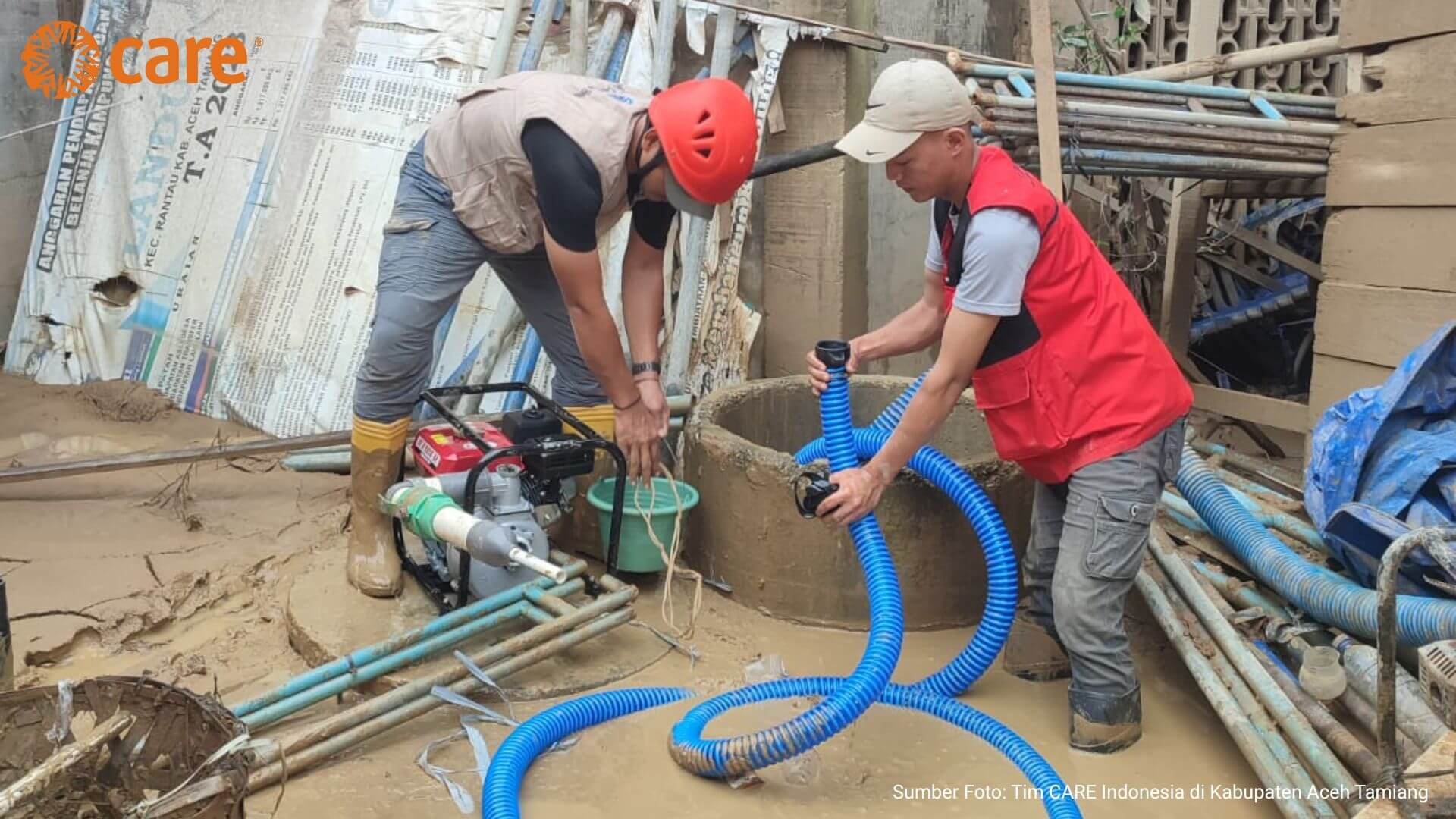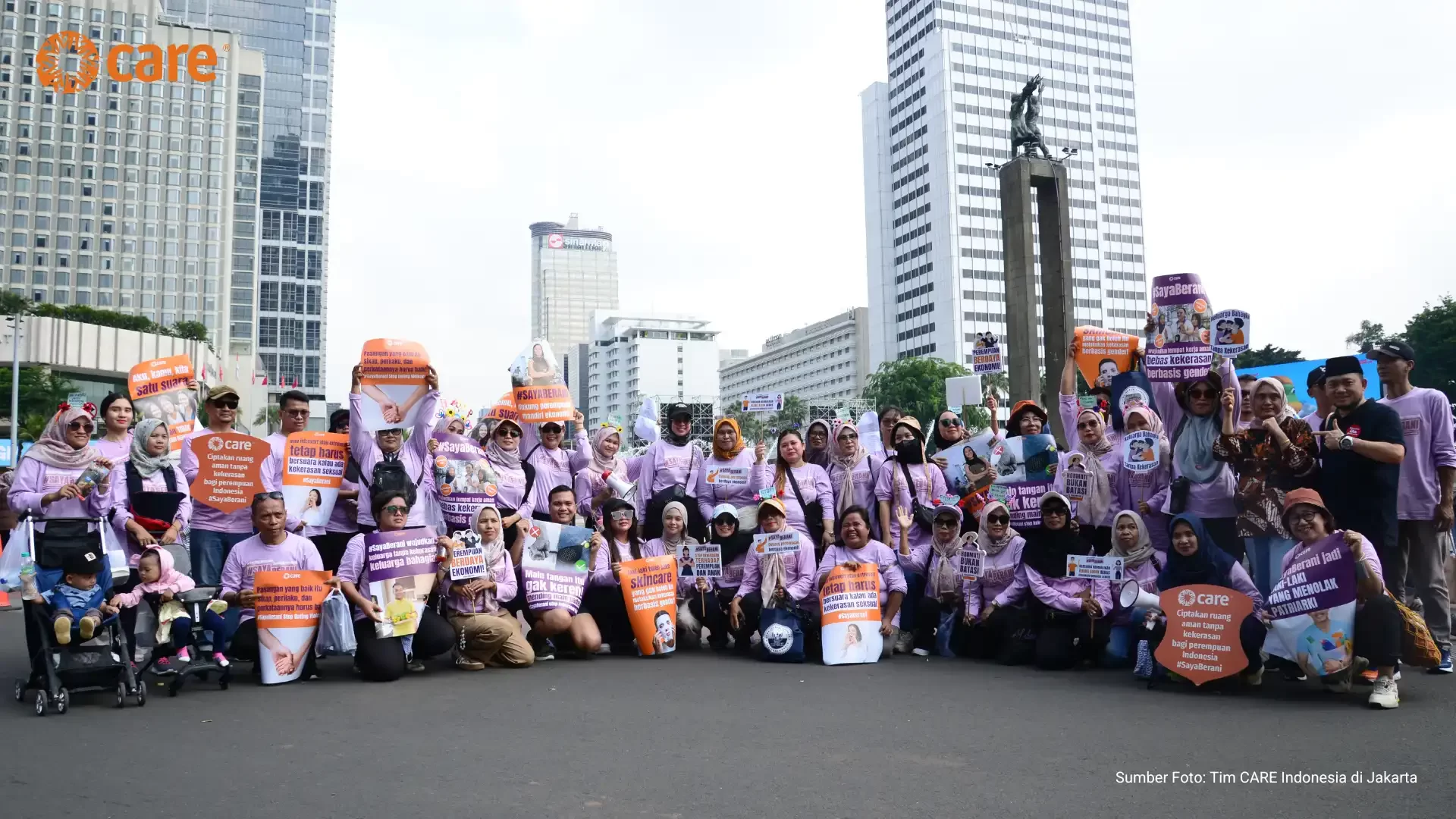Women-led Economic Business Groups (KUEP) in Musi Banyuasin District have been recognized by the Poverty Alleviation Acceleration Agency (BP Taskin) for their role in strengthening women’s economic empowerment in villages. KUEP has been acknowledged as a model program for poverty alleviation that could be replicated in various regions across Indonesia.
Citing insight.kontan.co.id, the Government of Indonesia through BP Taskin has set a target to reduce the poverty rate from 9.03% in 2024 to 4.5%–5% by 2029. Empowerment is one of the key strategies to boost community livelihoods. CARE Indonesia (Yayasan CARE Peduli/YCP), in collaboration with PT Cargill and supported by the Musi Banyuasin District Government, has carried out empowerment initiatives to strengthen the economy of women including women farmers living around palm oil plantation areas. This includes mentoring and forming women- and community-based economic groups at the village level to help families increase their incomes, especially amid the challenges of palm oil plantation replanting cycles.
Novrizal Tahar, Deputy II Deputy for Accelerating Capacity Building and Access Provision, BP Taskin, emphasized that women’s economic empowerment, when carried out collectively, can lift communities into a higher economic class. He conveyed this during a visit to two KUEP groups in Cipta Praja Village and Tegal Mulyo Village, Keluang Subdistrict, Musi Banyuasin, on Saturday, September 20.
“The economic empowerment model implemented by KUEP is one pathway out of extreme poverty, as it fosters small enterprises run by its members. This concept is highly relevant and should be replicated in other regions,” said Novrizal.
In a discussion with members of the Perempuan Tangguh Peduli KUEP in Tegal Mulyo Village, Novrizal noted that the savings-and-loan scheme run by the group had proven to be an effective instrument in strengthening women’s economic resilience in the village. This success lies in the way members utilize interest-free loans from KUEP to expand and sustain their businesses.
For example, the Perempuan Mandiri Sejahtera KUEP in Cipta Praja Village has developed a thriving business in palm frond weaving crafts. During his visit to the group’s secretariat, Novrizal highlighted that such enterprises not only provide additional income but also generate unique, diverse, and attractive products.
“The savings-and-loan activities managed by these women are remarkable. With only an initial capital injection of IDR 50 million, the revolving fund has grown to more than IDR 220 million within three years. Likewise, palm frond crafts have become an alternative source of income, and the products have even been listed in the regional government’s e-catalog,” explained Novrizal.

Scaling Up the KUEP Model
Beyond the field visits, Novrizal, together with CARE Indonesia’s CEO Dr. Abdul Wahib Situmorang, joined a discussion with six journalists on Sunday, September 21, at Roemah Demang in Palembang. The dialogue aimed to amplify the positive results of women’s economic empowerment through KUEP. Novrizal stressed that poverty alleviation cannot rely solely on social assistance in the form of cash transfers but must also be accompanied by sustainable empowerment efforts tailored to local contexts and potentials.
“We cannot continuously depend on government budgets alone. I have seen firsthand how PT Cargill’s CSR program has created tangible and sustainable impact. This is a best practice worth adopting as a national role model,” he told journalists.
Dr. Abdul Wahib Situmorang highlighted that KUEP has successfully elevated household economies with women as the central actors. In Musi Banyuasin, there are currently 13 KUEPs running small-scale businesses ranging from palm frond crafts, grocery shops, and culinary ventures to online-based enterprises.
“Through KUEP, women are given space to self-organize, access interest-free business capital, and learn how to manage savings, loans, and financial records. As a result, members are now able to earn an average income of IDR 8.84 million from various business activities,” he explained.
Furthermore, Abdul encouraged private sector actors to actively participate in women’s economic empowerment through sustainable CSR programs.
“We are ready to share our experiences and program designs so that others don’t need to start from scratch. What’s needed is the will and openness from businesses in other regions. In South Sumatra, we have already engaged with several business actors by sharing lessons from Musi Banyuasin’s KUEP programs. We hope such collaborations will strengthen community livelihoods and help eradicate poverty,” he concluded.
Writer: Kukuh Akhfad
Editor: Swiny Adestika





